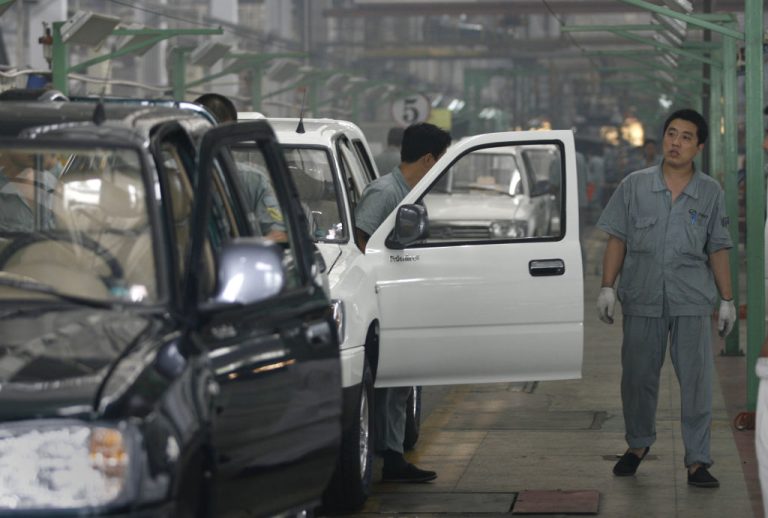Mainland Chinese companies are laying down roots in Mexico in order to exploit a loophole around U.S. import tariffs.
The issue came to light in a Sept. 13 Bloomberg article, which described the anecdote of a local real estate lawyer who turned a cattle ranch in Monterrey he inherited from his father into an industrial park emblazoned with a Chinese name.
Hofusan Industrial Park is now home to 11 plants and warehouses owned by 10 mainland Chinese companies, up from just one building three years ago.
Plans to expand the number of facilities on the 2,100 acre site to 35 within the next two years are already in motion.
MORE ON MEXICO AND CHINA
- Thousands of ‘Rainbow Fentanyl’ Pills Seized by US Customs
- Mexican Drug Cartels Laundering Money Through China’s Triads After Championing US Fentanyl Push
- Elite Mexican Anti-Narcotics Squad Disbanded After Being Infiltrated by Drug Cartels
- California DA Charges Fentanyl Traffickers With Manslaughter After 800% Increase In Overdose Deaths
The article explains that managers of the companies, “Predict there will eventually be 15,000 people working at Hofusan—about 10% of whom would be Chinese managers—and plan to build restaurants to cater to them as well as homes to house them.”
Success
You are now signed up for our newsletter
Success
Check your email to complete sign up
The owner of the former ranch, Cesar Santos, boasted that he had imported $1 billion in investments from the Chinese Communist Party-associated entities already.
The article explained that in 2014, Santos traveled to Shanghai where he was courted by a “Chinese investment fund” that “was looking for a large site located a short drive from the US border.”
The name Hofusan is a conglomeration of the names for the two investment firms, Holley Group and Futong Group, in addition to the Santos family.
Simon Huang, Country Manager for Kuka Home, one of the Chinese firms rooted in the plot, was paraphrased by Bloomberg as explaining that, “Thanks to the country’s free trade pact with the US and Canada, a chair made at Kuka’s factory in Hofusan can travel across the border duty-free, whereas one shipped to the US from China would be hit with a 25% tariff.”
One Mexican manager employed by a Chinese firm interviewed by Bloomberg was paraphrased as pointing out that the arrangement had a second significant advantage for mainland companies because “goods take around 10 weeks to be made and shipped to US clients from the company’s headquarters in Hangzhou, vs. four weeks from northern Mexico.”
A May article by National Law Review further noted some additional factors to the movement of Chinese companies to Mexico, including the need to escape from the CCP’s notorious and hysterical Zero-COVID policies, which disrupt productivity, and regional import requirements imposed by the 2020 NAFTA successor USMCA.
A second May article by Marketplace noted that another factor was the prominent-at-the-time supply chain crisis, which, according to one U.S. toy manufacturer they interviewed, had increased import time from Guangzhou from 21 days to 159 days.
One partner of a Mexico-based consulting firm the outlet spoke to elucidated just how high the demand is for commercial real estate near the U.S. border, “If you’re trying to find real estate or industrial parks or warehousing close to the border, you won’t get anything until 2024, 2025. Everything’s sold out.”
Based on data from the Mexican Secretariat of Economy, Bloomberg also showed that investments in Mexico comprising both Hong Kong and the mainland have run just shy of a half billion dollars in 2021.
The second closest year was 2018 at $420 million. Counting 2016 and earlier, investment was no higher than just shy of $155 million.
Bloomberg noted that by contrast, American companies had invested $14.8 billion in Mexico last year.


















